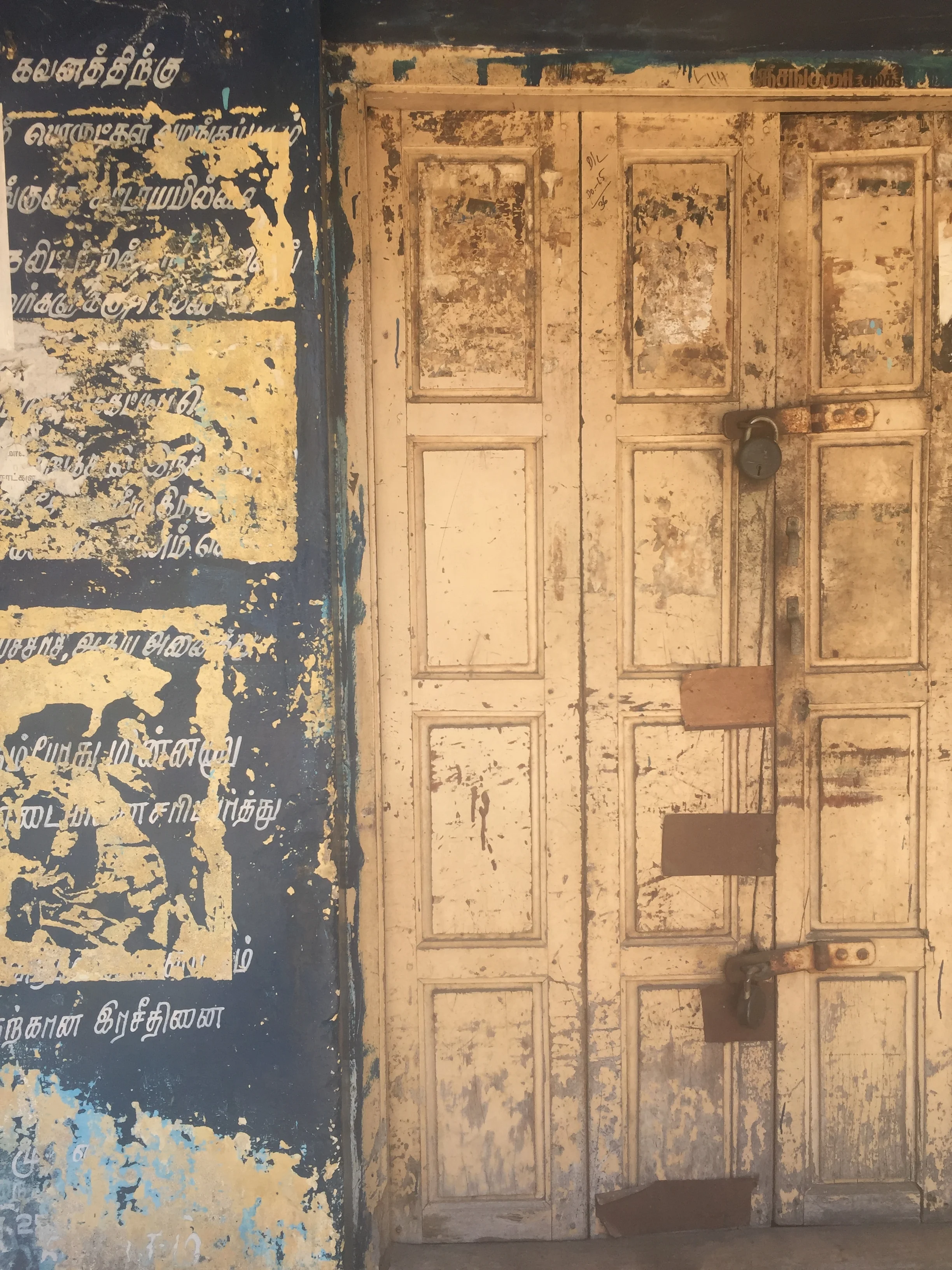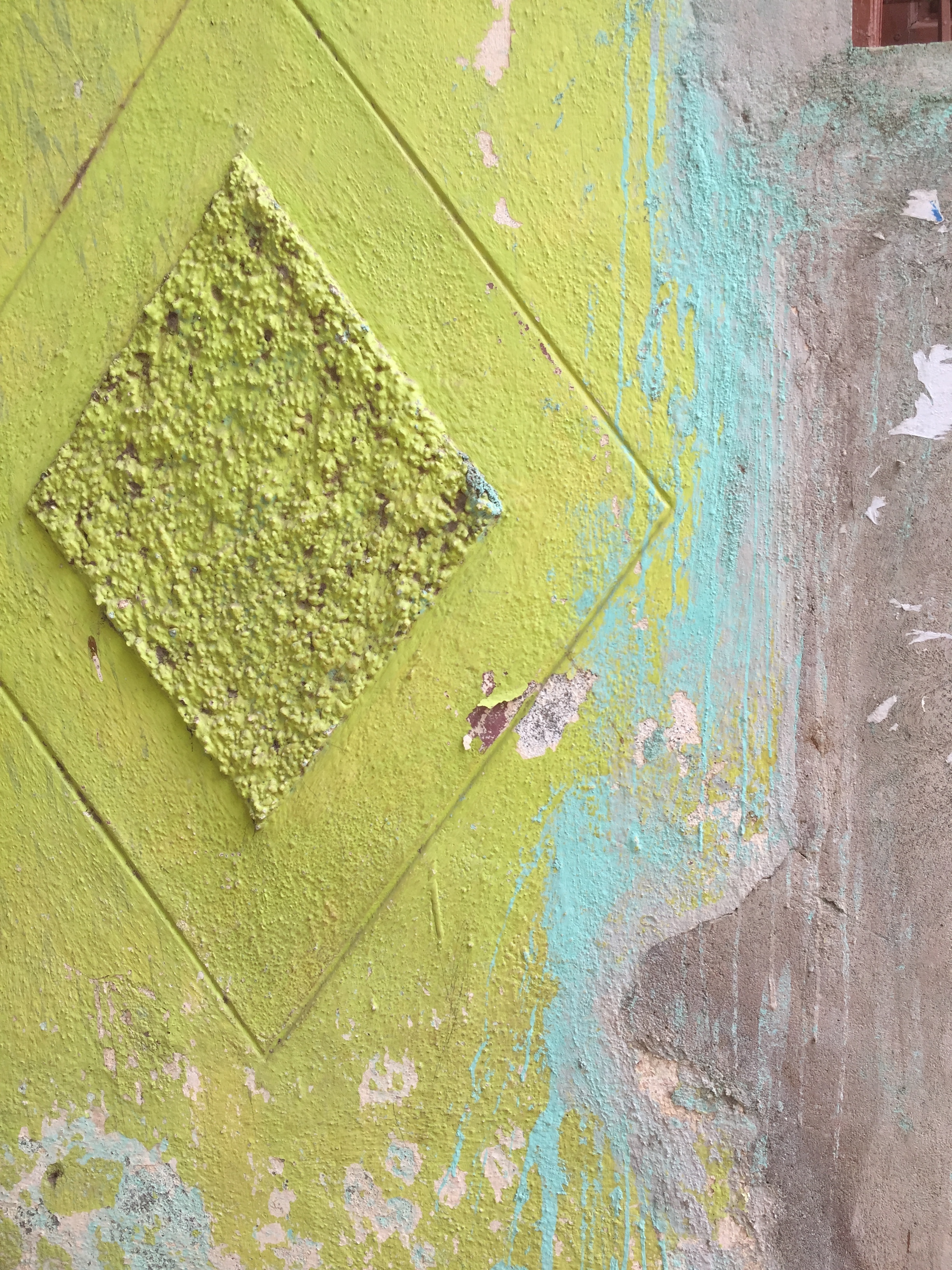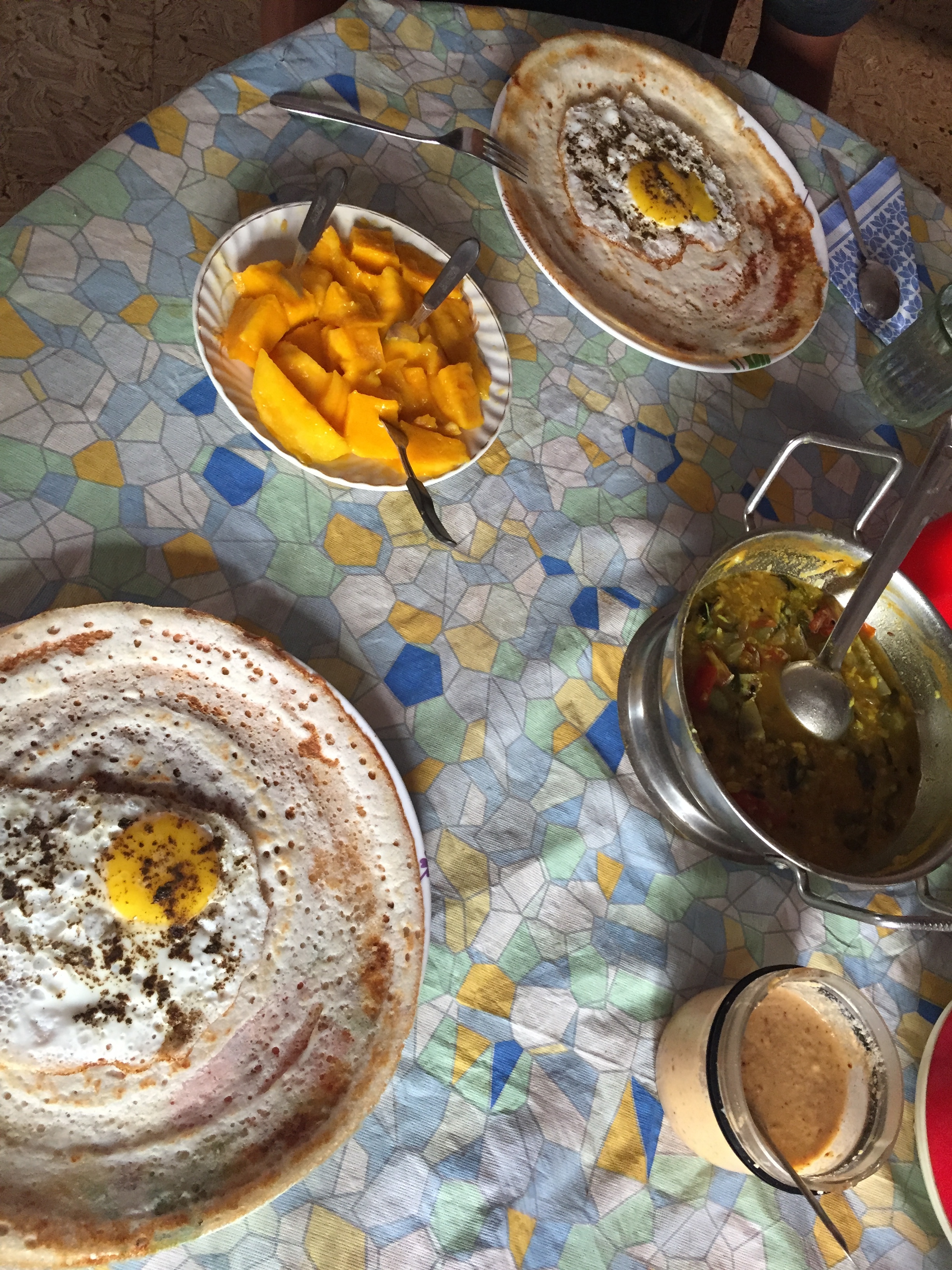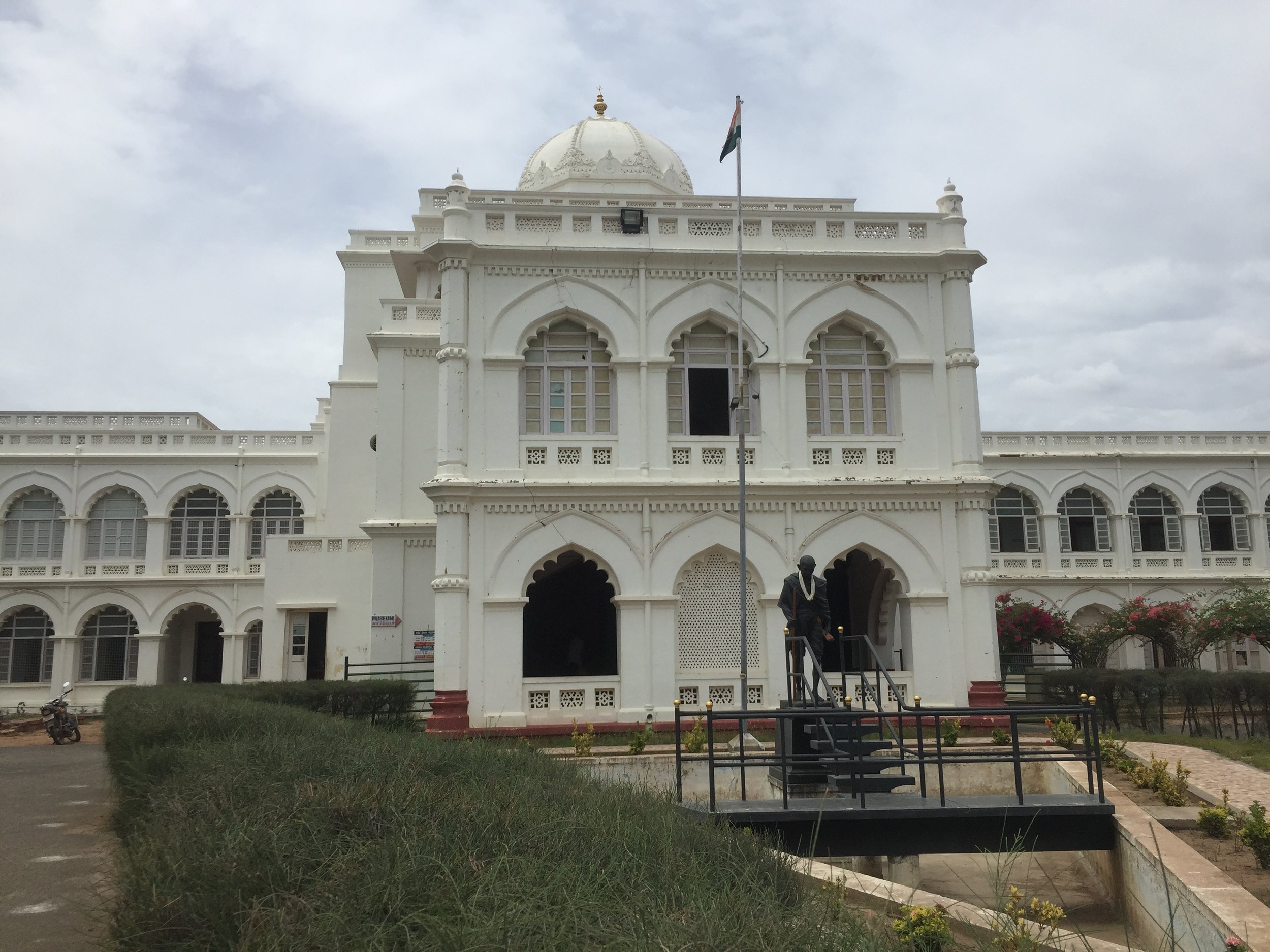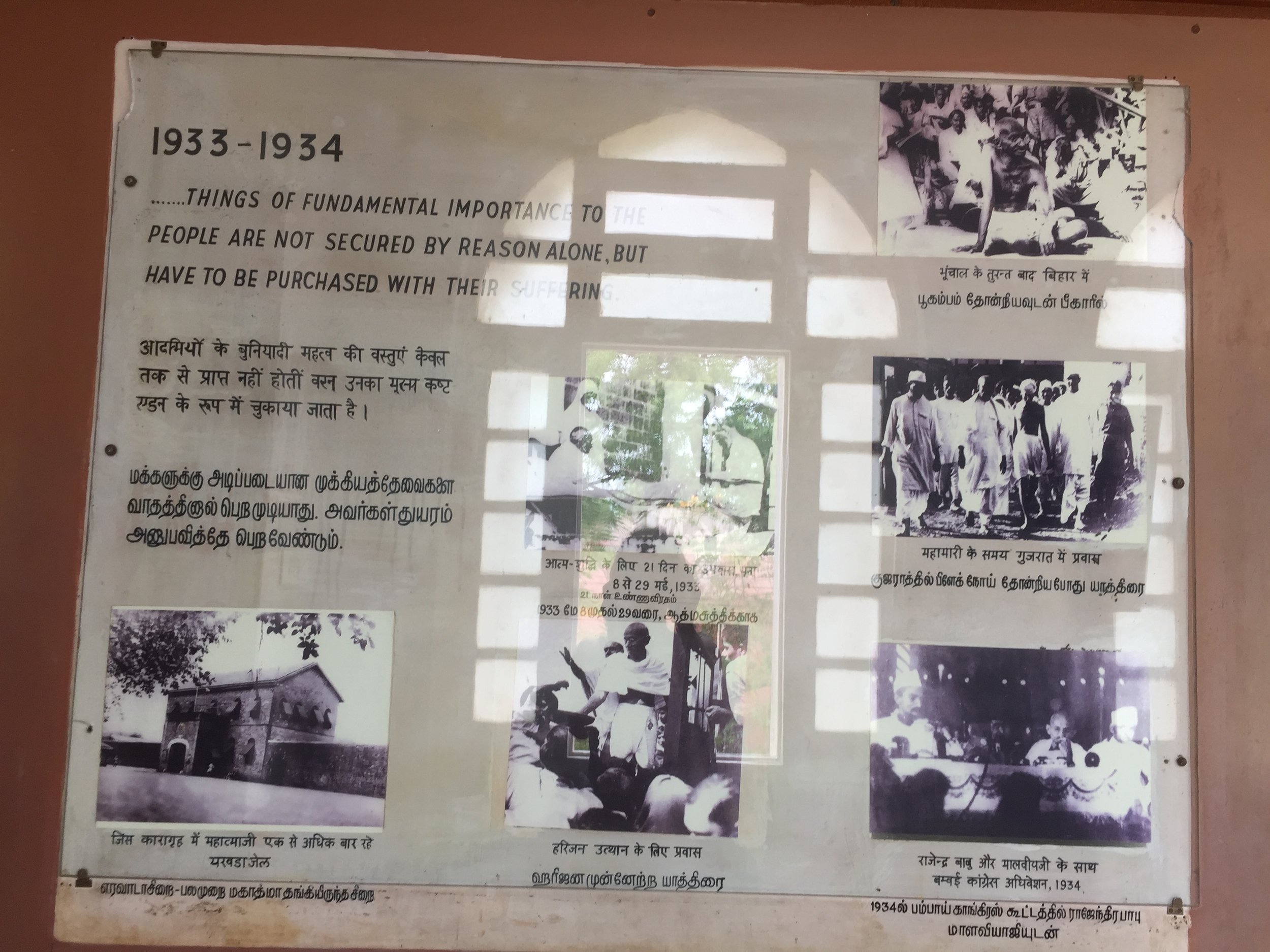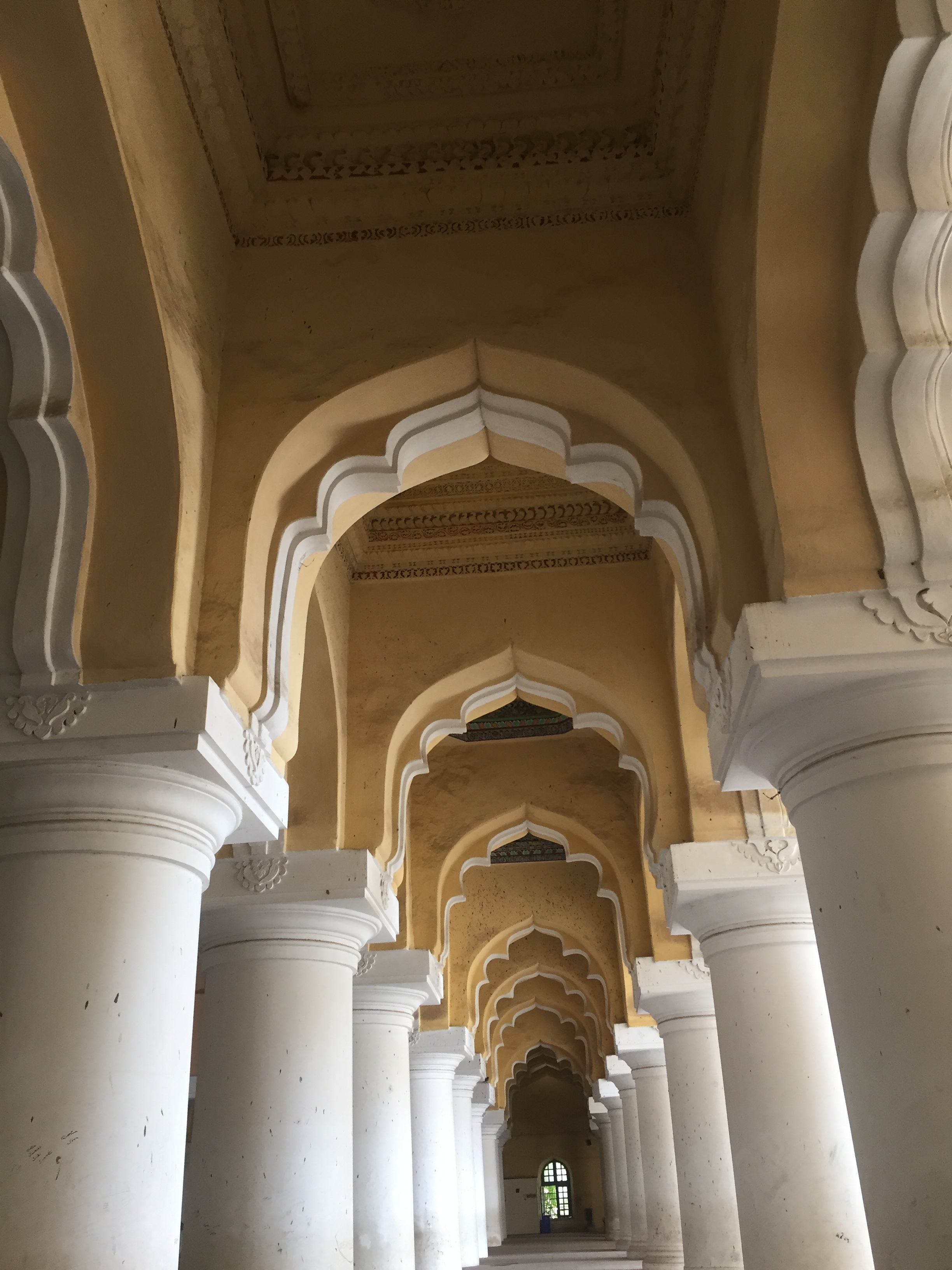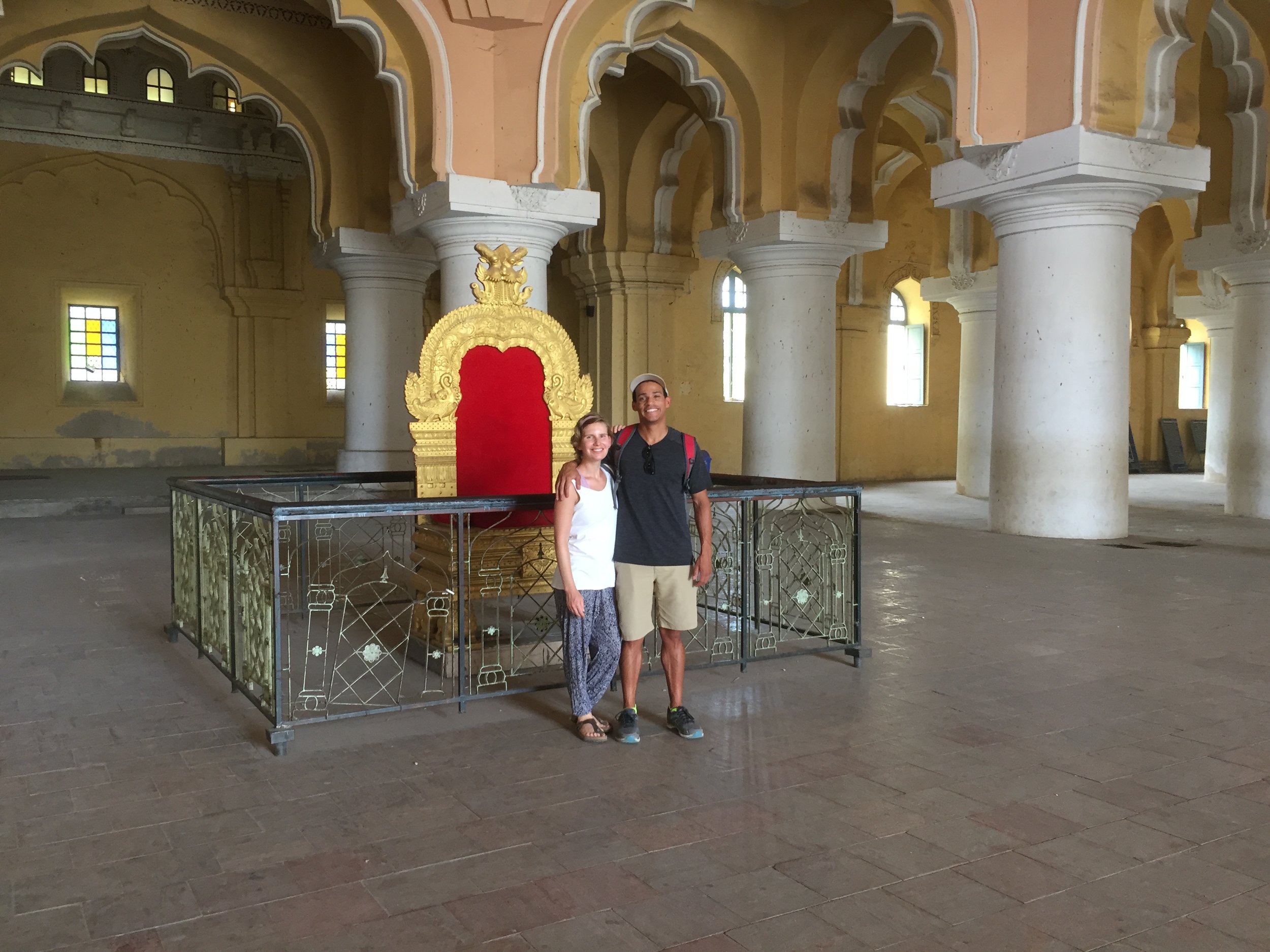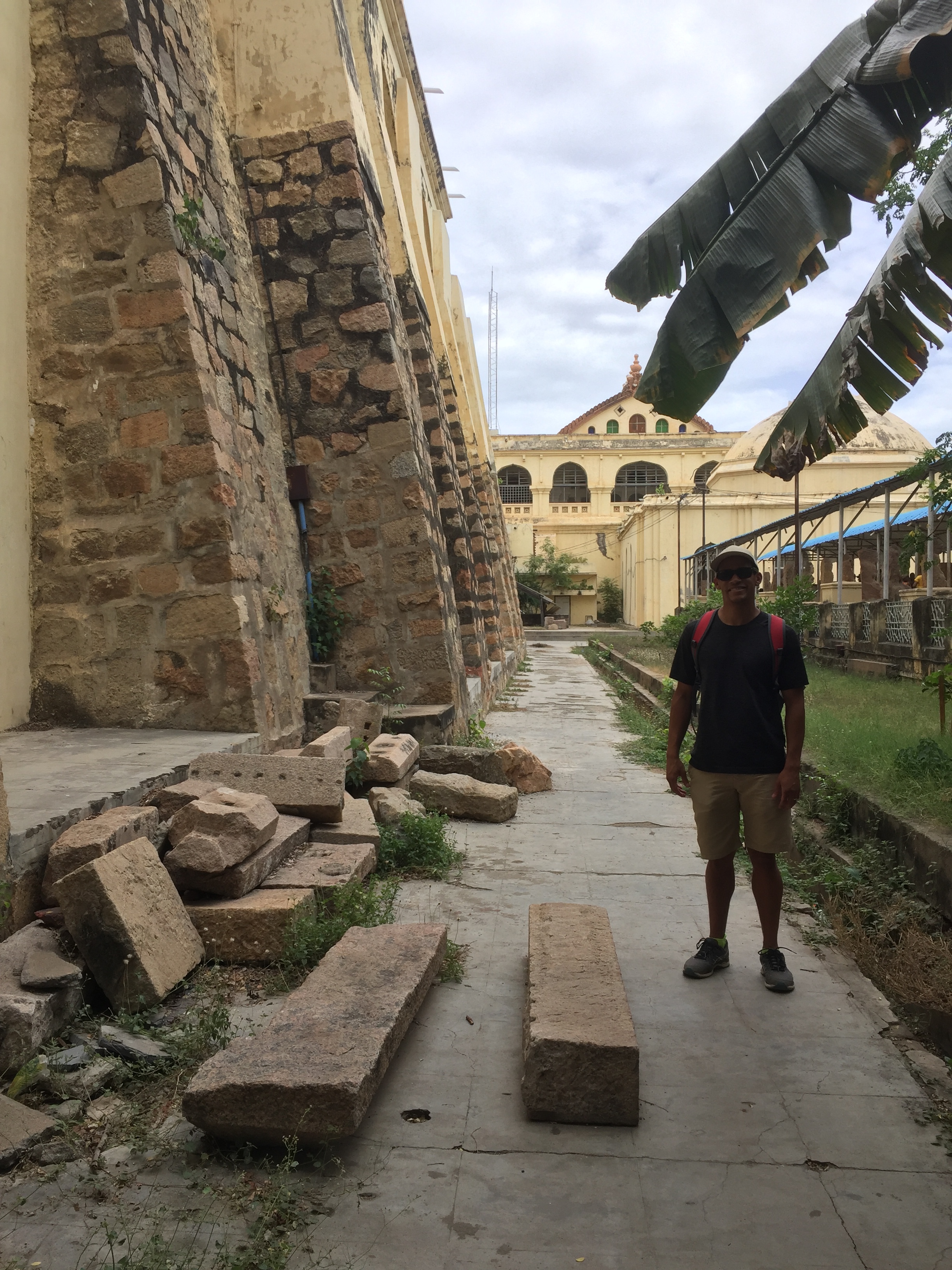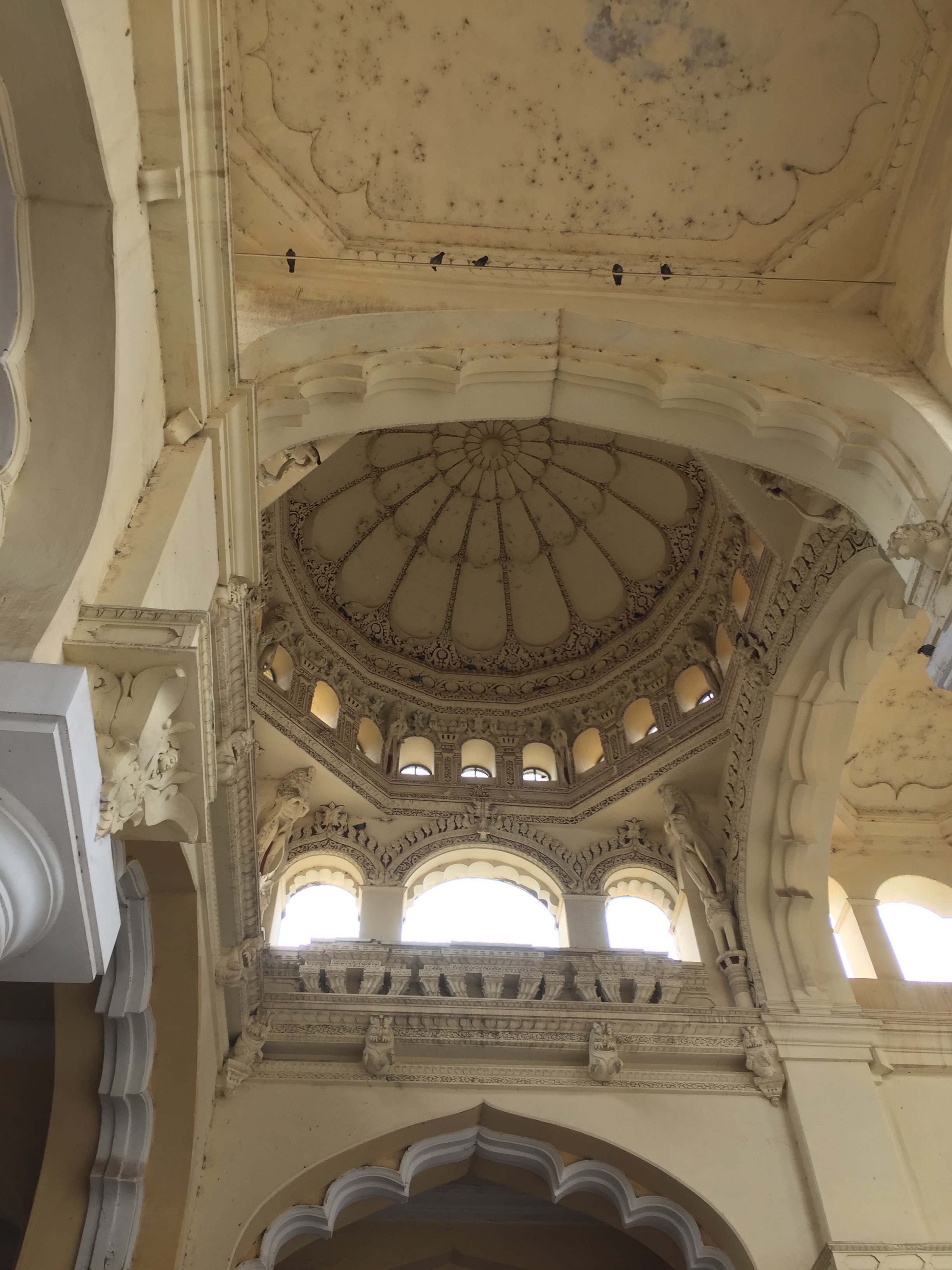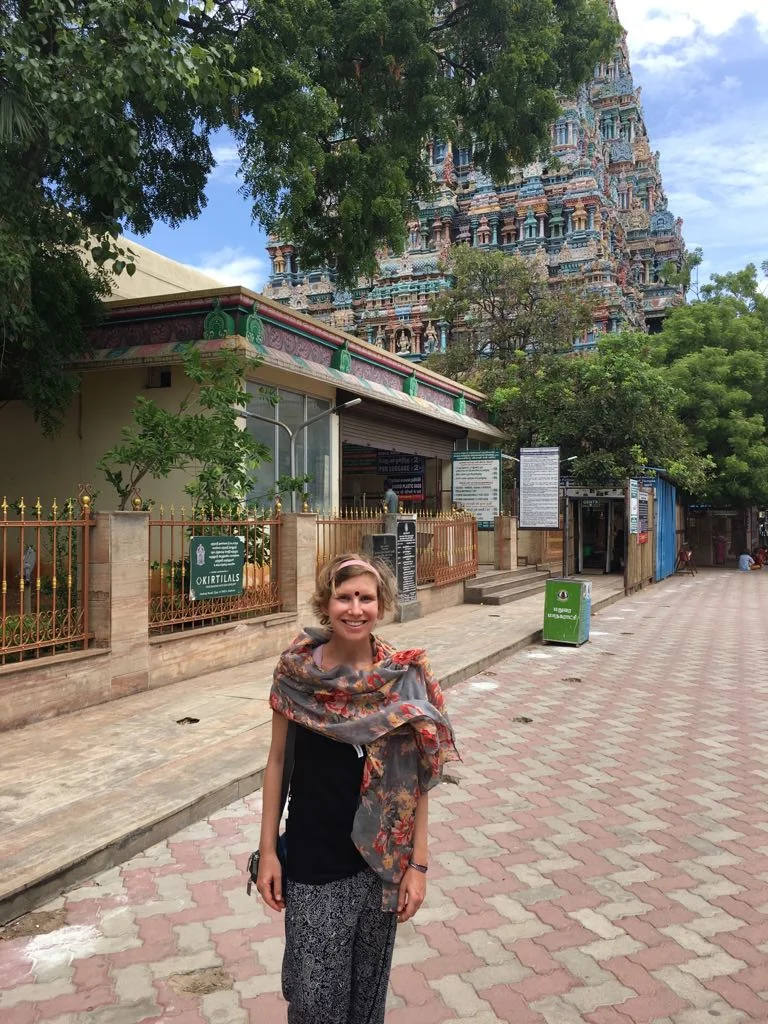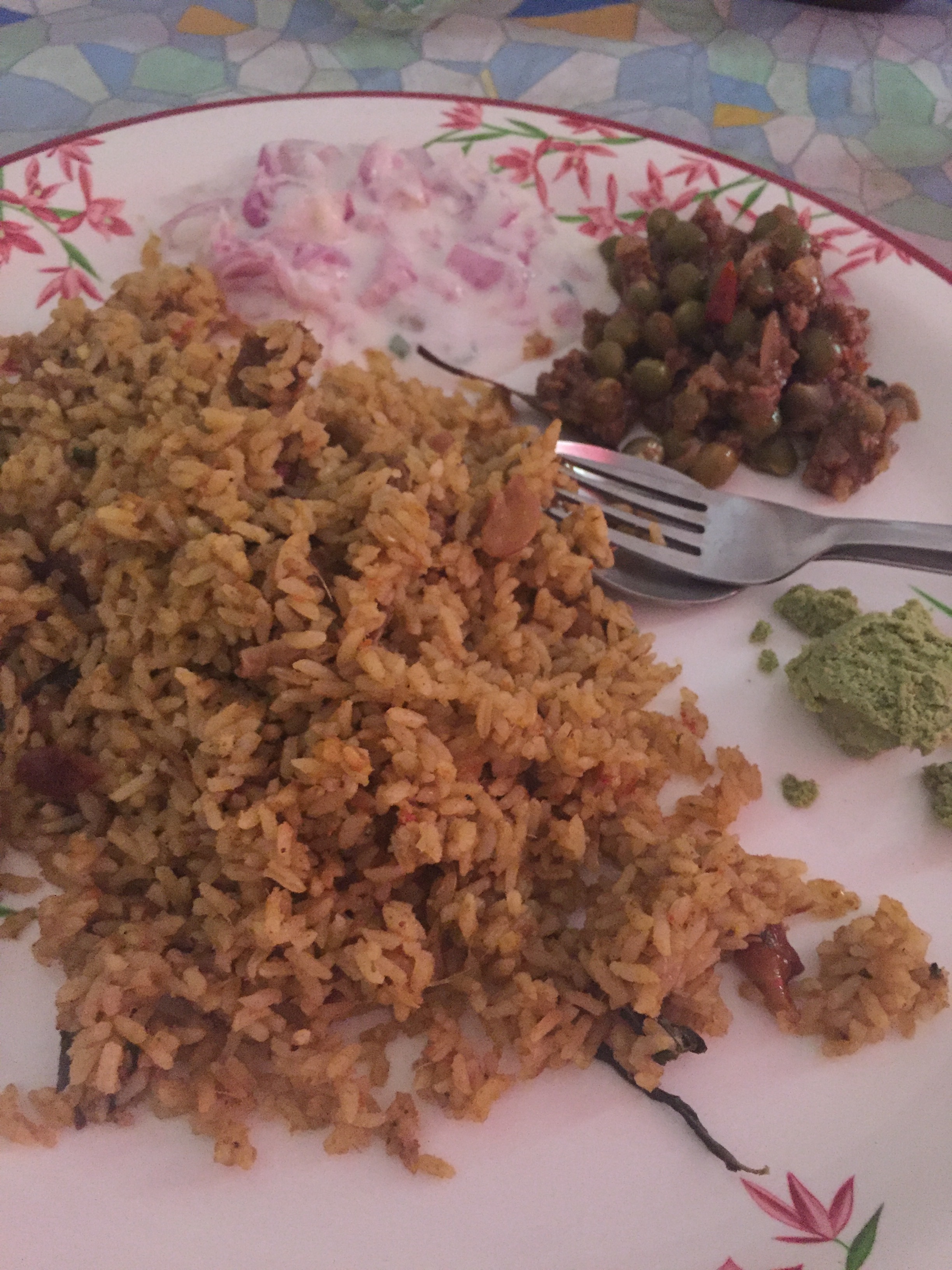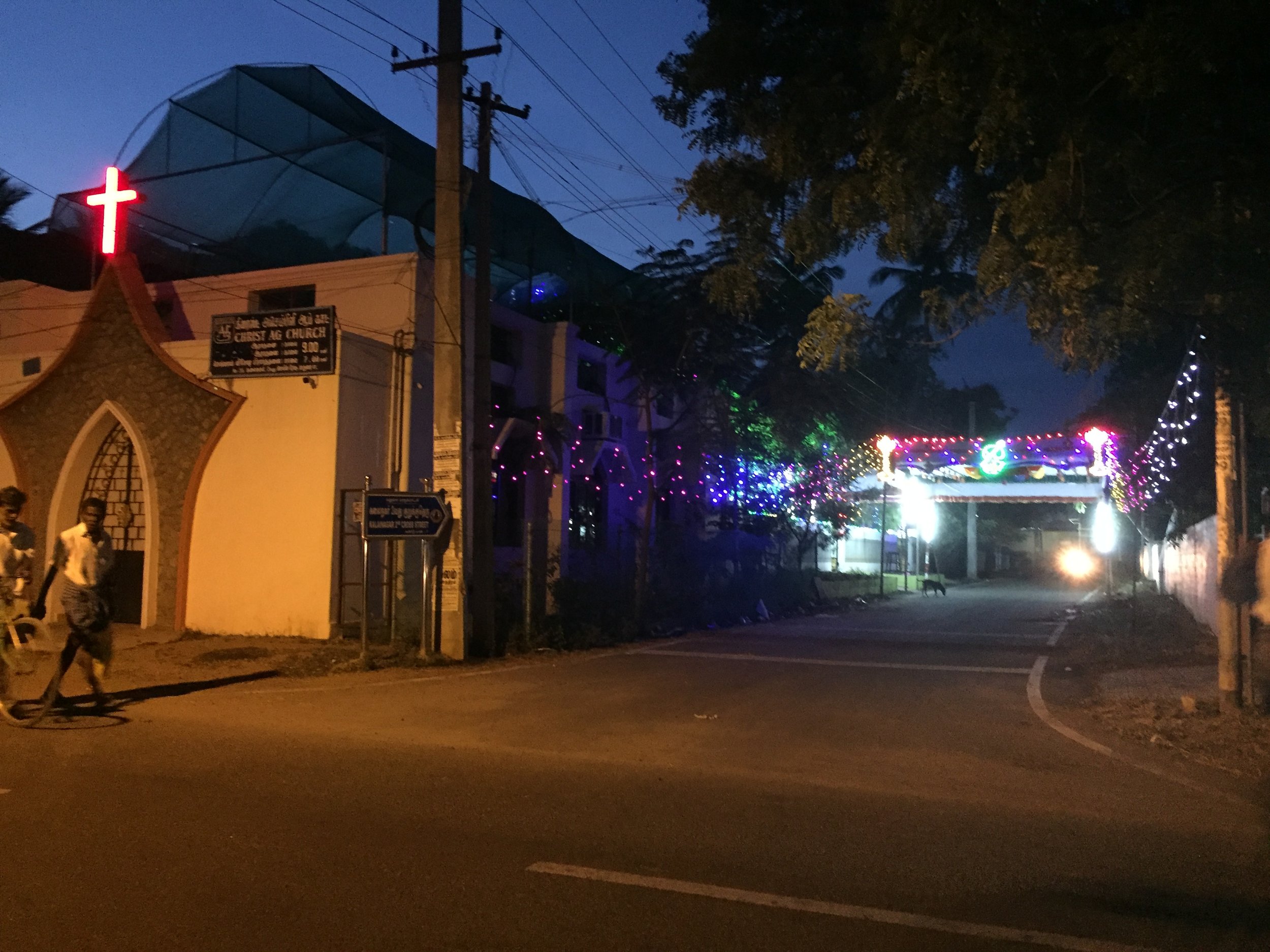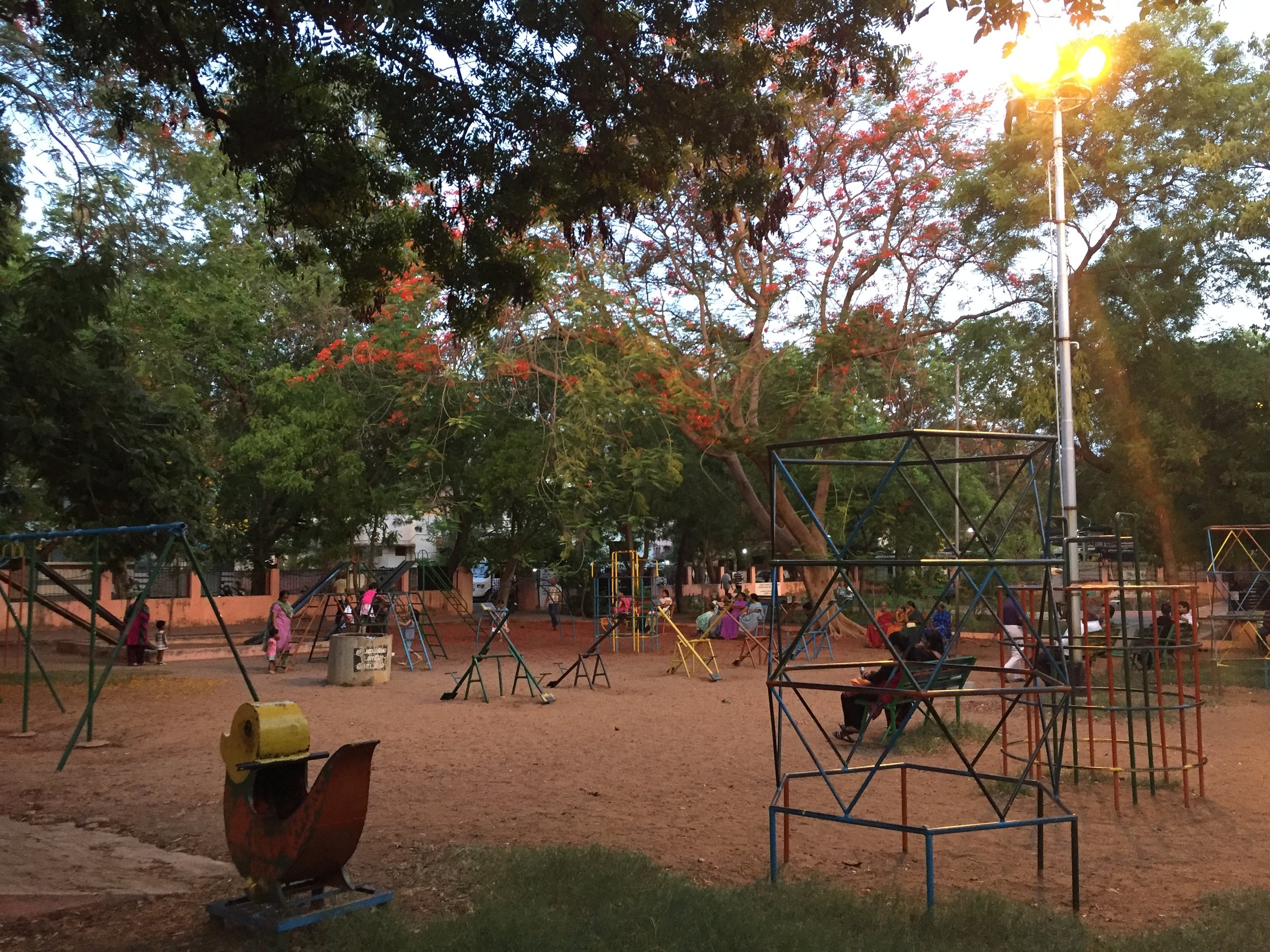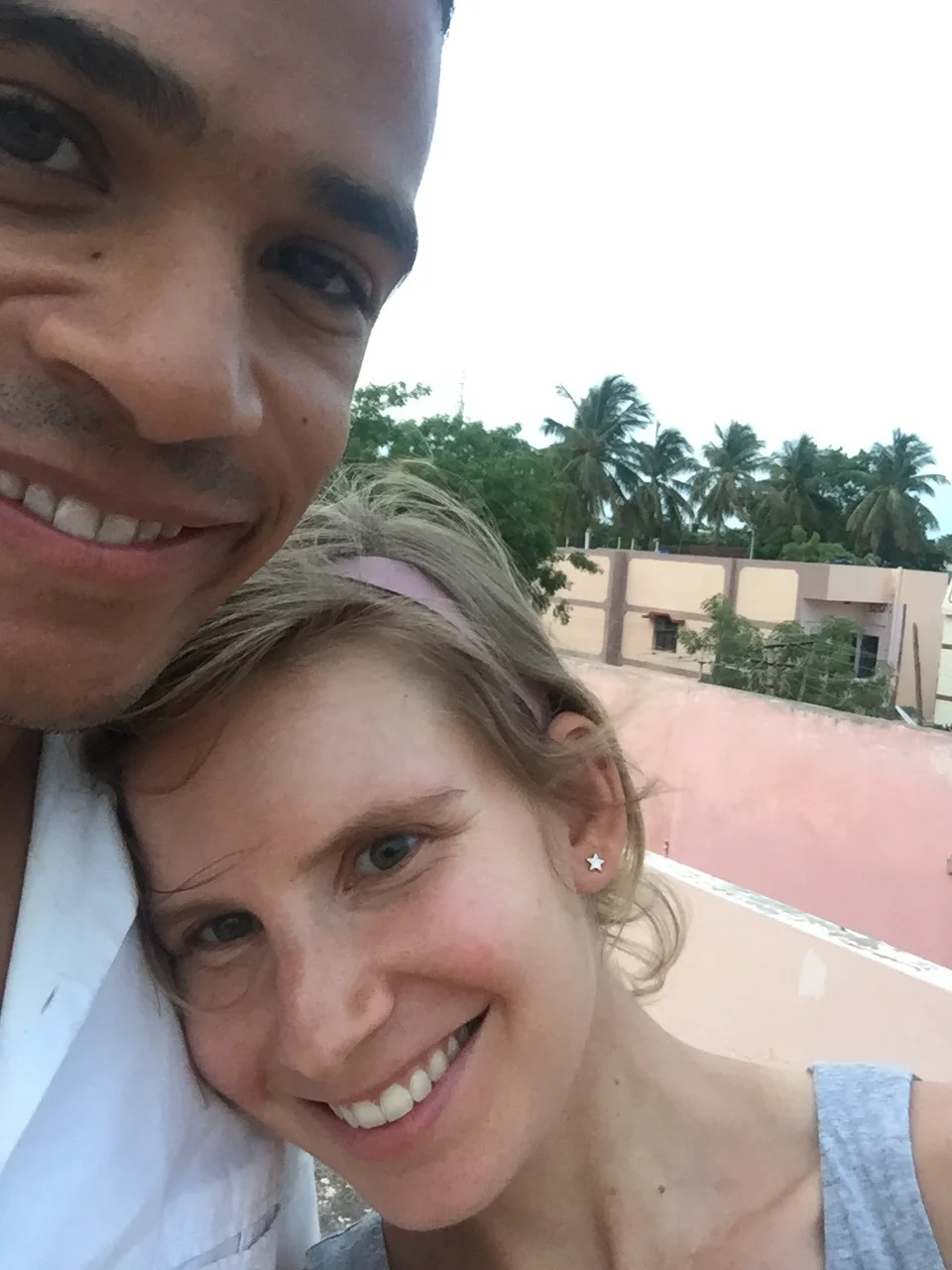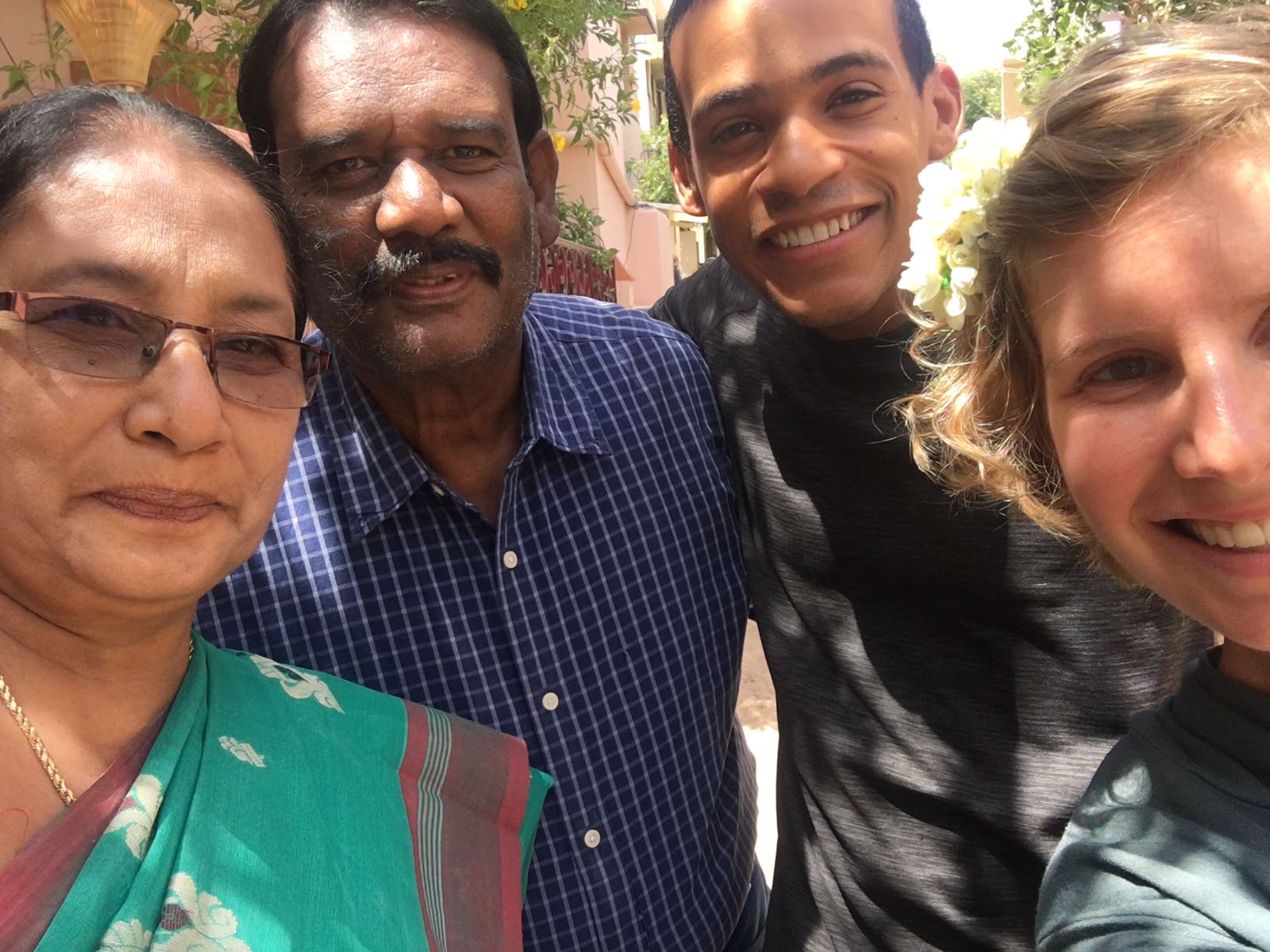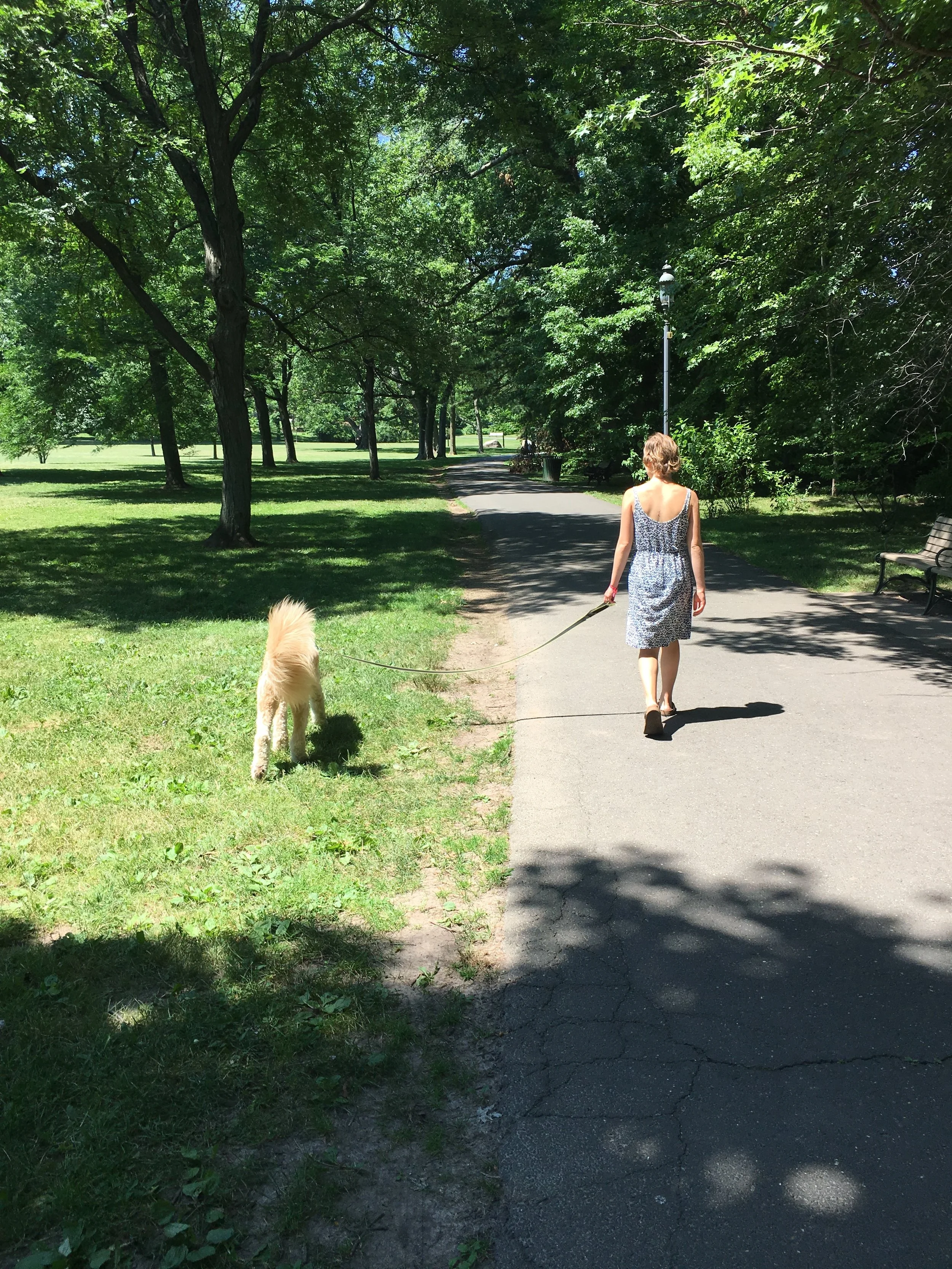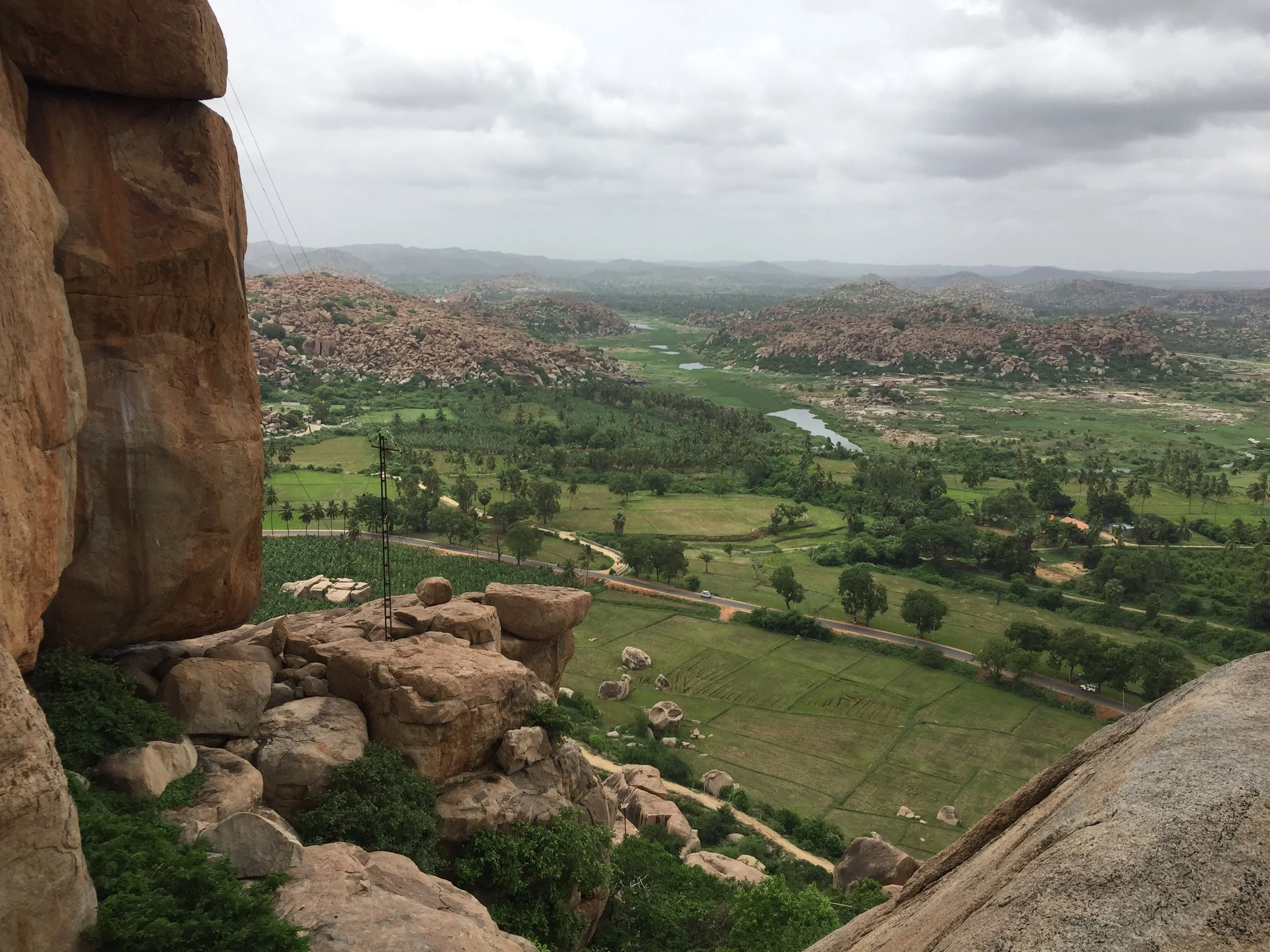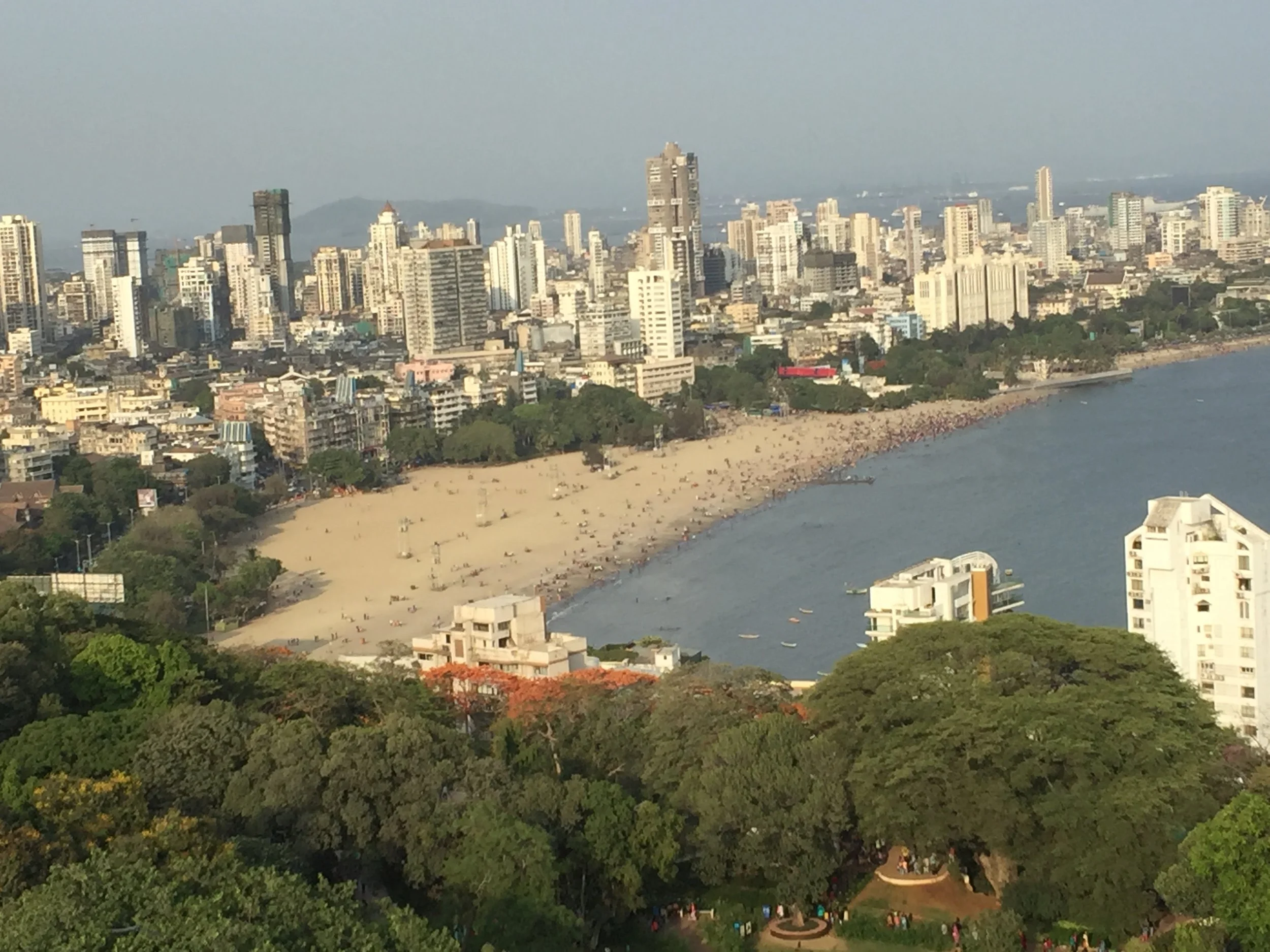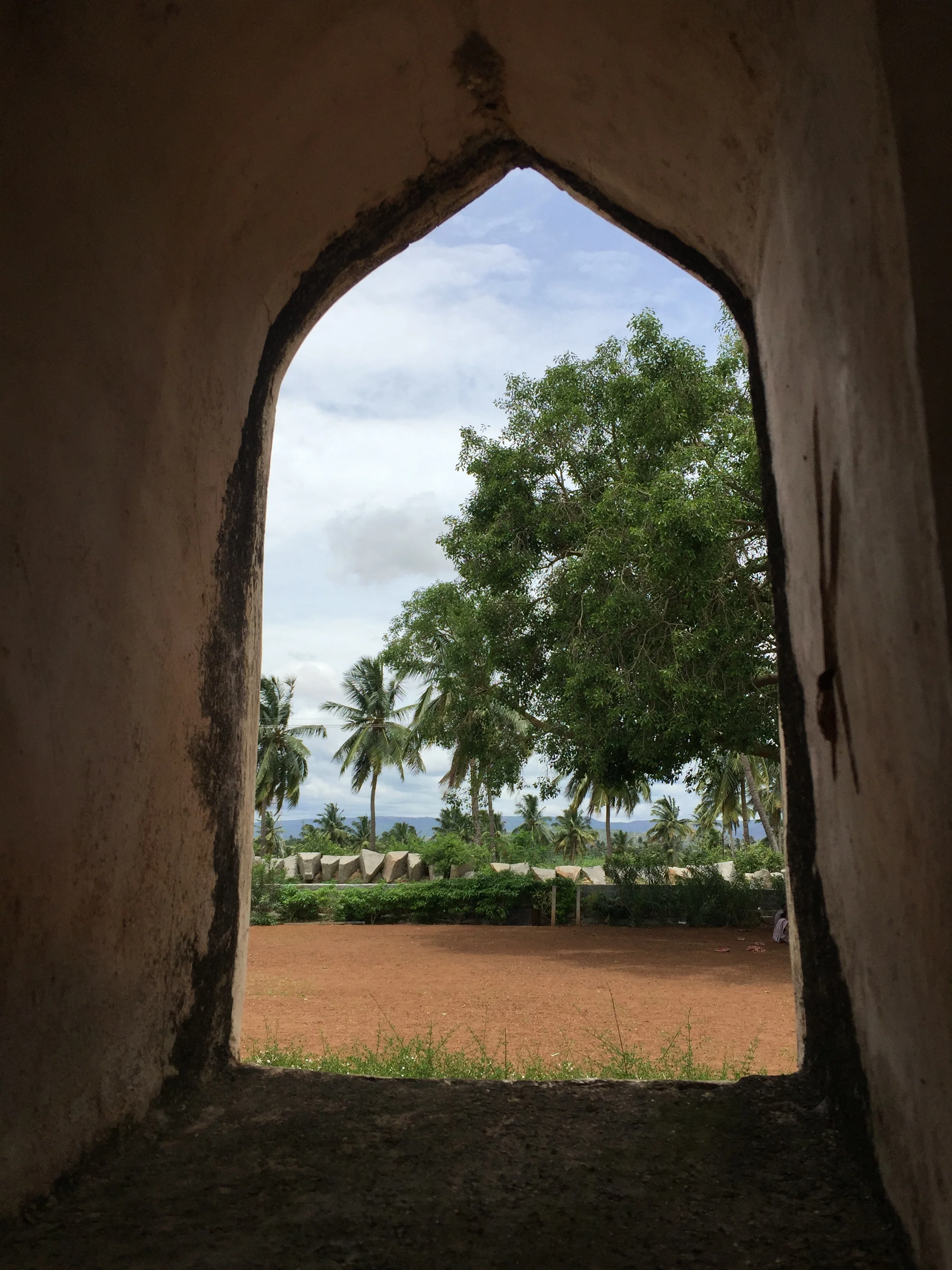Madurai: Meaningful Connections
Human connections are the most meaningful aspect of travel. I remember when we stayed in a Te Anau, a small lake town in southern New Zealand, a young man told us you can see only so many beautiful sunsets, climb so many mountains, until the memories start to blur.
It's the people who you remember. The stories they tell. The way they made you feel. The emotions that others evoke--that's the most powerful part of traveling and what resonates later on.
We visited Madurai because it was recommended as an easy access point to Sri Lanka by a fellow traveler we met in Chiang Dao, Northern Thailand. It's known to travelers for the renowned Meenakshi Amman Temple, deemed one of India's greatest temples.
Our experience in Madurai was defined by the couple we stayed with. Their hospitality was limitless, and by the end we became good friends.
Madurai is a fascinating city, but it was our introduction through our gracious hosts that was most impactful.
Rooftop of our airbnb
They picked us up late at night from the airport after a long day of travel, and had homemade warm parotta--a layered Indian bread--with a chicken curry sauce for dipping. It set the tone for the rest of our time in Madurai.
Rooftop of our airbnb
Since we've gotten in the habit of staying in one location for a week, we stayed for six nights.
We feared it was too long, but as one of the ancient cities in India, it's laden with a rich Tamil history.
Whereas Chennai is the capitol of Tamil Nadu today, Madurai long proceeded Chennai.
And served as a main trading city with ancient Rome.
The city itself was an extreme dichotomy between old and new.
Whereas medieval temples and ancient and historic palaces attract visitors, like so many other cities in the area, the economy is driven by IT.
View of the Cathedral from our rickshaw
Madurai is a fascinating city, and there was plenty to explore. And we did take wonderful day trips.
However, it was our conversations with our hosts, and so many shared meals, that deeply resonated. Mornings started early with a five course freshly prepared meal. The spread differed each day. Below is Bombay toast (essentially French toast), idli with daal sauce (savory rice cake), and a masala dosa with coconut chutney (Indian crepe).
We typically had dosas and idli with every breakfast. But other accompaniments included, but not limited to: medu vada (a savory fried donut) and sweet ragi semiya (vermicelli noodles with shredded coconut and sugar), shown below on the left. Corresponding curry based sauces and mint and coconut chutneys were always included, shown below on the right.
Other breakfasts included Idiyappam (steamed rice noodles) served with a curry sauce, shown below. We were encouraged to finish everything on the table, which was a tall order. It was undoubtedly the best we ate in all of India. Our host was a phenomenal cook and made the very best dosas, but we did feel the need for a nap afterward.
Our first day was spent exploring the neighborhood. There were no sidewalks necessarily, but it didn't seem to be an issue.
We were staying in an old weaving neighborhood. So there were ample small shops, mostly selling packaged snacks and trinkets. But it was the sounds that were all encompassing. Motorbikes and rickshaws created a symphony of screaming horns.
People pushing carts, frying dough, selling fresh fruit.
The daily morning farmer's market was not far. It was a vibrant look into the everyday.
Not knowing the protocol, we immediately felt like outsiders.
The learning curve was brief. We went to Hotel Temple City on V.P. Rathinasamy Nadar Road for lunch. There was no menu, so as we got up to leave, the server tried to explain to us for the umpteenth time through hand gestures, you can only order what the table next to us had. It resembled thali. We said sure. And for less than $4 USD, we were served yet another all you can eat multi-course meal, complete with a dessert of a banana, pann (a stimulant made from betel leaf), and ice cream.
Later in the week, we visited the Ghandi Memorial Museum.
The museum is one of five museums commemorating Gandhi in India.
Exhibits detailed his early life and rise notereity. Gandhi first employed nonviolent protest techniques a lawyer in South Africa. He returned to India in 1914, and started to organize farmers and urban workers to protest land-tax and discrimination.
There is an extensive exhibit on the Freedom Movement. And the museum notably holds part of the blood-stained garment worn by Gandhi when he was assassinated.
It was a fascinating perspective of Gandhi's life from an Indian perspective.
We also visited the Thirumalai Nayak Palace, or the King's Palace.
The 17th century palace was built in 1636 AD, by King Thirumalai Nayak who ruled Madurai from 1623-1659.
The King's Chair
The palace represents a combination of Dravidian and Rajput styles.
The original palace was four times the size that remains today.
It's considered to be one of the grandest palace's in Southern India, and rightfully so.
After, we had the same experience with lunch. No menu, so we got up to leave and finally succumbed to ordering the "mini meal," which consisted of a tiffin-style lunch of three difference kinds of rice.
Towards the end of the week, we finally visited the infamous Meenakshi Temple.
I was gifted the bindi by a woman passing by
The historic Hindu temple was dedicated to Meenakshi, a form of Parvati and her consort.
The temple is located in center of Madurai. In Tamil Sangam literature, it's referred to in 6th century CE texts.
Despite the extensive history, most of the temple was restructured after the 14th century CE, and expanded by Thirumalai Nayak in the 17th century.
This was one of the most conservative places we've visited, with a strict dress code. Many portions of the temple were off limits to non-Hindus.
We (read: I) also enjoyed popping into the shops surrounding the temple, selling bright scarves, wraps, jewlery, lanterns, and woven rugs.
Although we did visit some sites, we spent most of our time chatting with our hosts in their living room.
Stairs from their apartment to ours
They're some of the most inspirational people. They are both in education, and told us about their upbringings. Their now grown sons moved to the States, and they spoke of the beauty and difficulty of them living so far.
They taught us about Indian culture, explaining the caste system and the differences between various Indian states. They treated us to a traditional mutton biryani Sunday lunch.
Also an elaborate thali lunch, in which we ate off of banana leaves with no silverware. We went out one night, and ordered falooda, a chilled dessert of layered jelly, fruit, and ice cream.
They lived in a neighborhood set back from the main road. But it didn't shield the noise.
We were directly next to a muslim mosque, which chanted prayers over a loud speaker several times a day. They described Madurai as multicultural, with Hinduism, Islam, and Christianity all living side by side. In fact, on the last day of Ramadan, their Islamic neighbors brought us their version of biryani.
Before 6 a.m., we there were carts of people selling flowers and coconuts. Roosters would crow and cows would loudly moo.
Our host would give me a jasmine flower, which woman wear in their hair daily, before I went out.
We came to know the area well, seeing the same characters in the same places each evening.
There was a lovely park by another mosque where people would congregate at night.
Before leaving, we exchanged contact information with our hosts, vowing to keep in touch. Madurai was a beautiful cap to our time in India.
We ended up having an unexpected seven hour layover in Mumbai.
We put our packs in storage at the airport and went out for one more stellar meal at our favorite restaurant: Samrat.
It was just as good as we remembered.
We walked around the park nearby at dusk, before taking the hour long Uber ride back to the airport.
We talked about how much we loved India, how much was unexpected.
Perhaps what we were surprised by most was the welcoming nature everywhere we went. We didn't visit some of the most talked about places: Rajasthan in Northern India, the Taj Mahal, or Kerala in Southern India. But we were fortunate to have an incredible introduction to Indian culture and connect the most beautiful people. The ancient temples were unparalleled, but it was feeling at home in a place so unfamailiar, that I'll remember.


